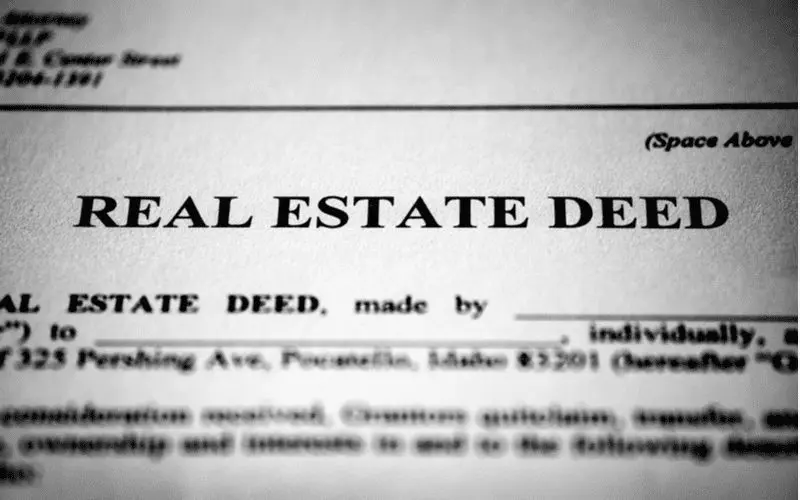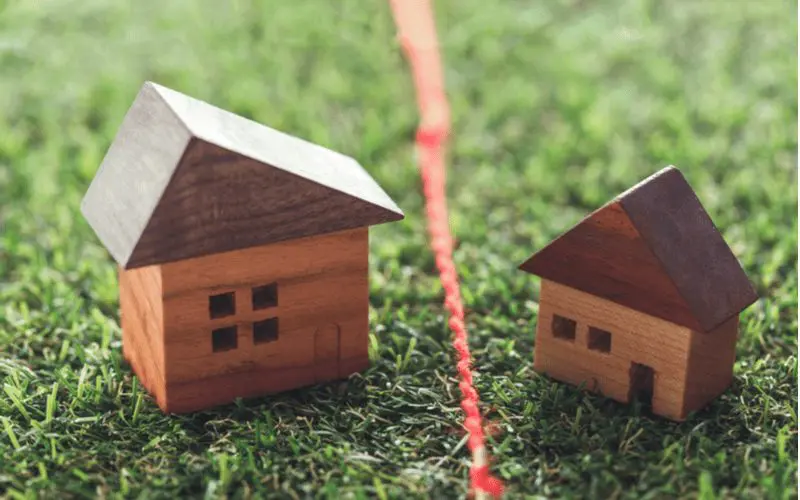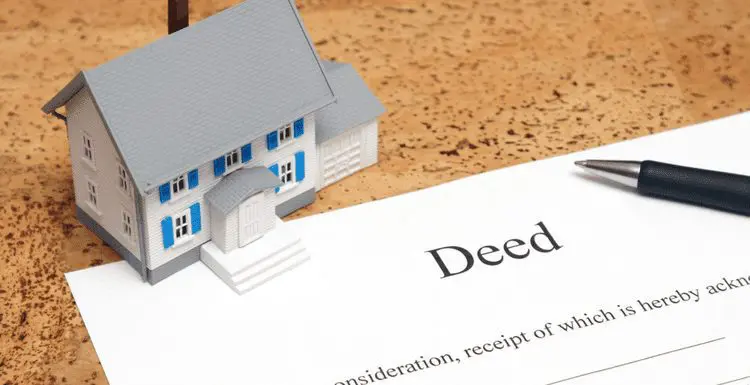You probably have a birth certificate, a marriage license, and several other legal documents.
But the only document that can prove your property ownership is your title deed. However, not every homeowner has a copy of this all-important document.
The hassle-free way to get a hold of your title deed is to buy a home without a mortgage.
But since most people buy their homes through a loan, their property deeds are usually in the custody of their mortgage, at least until the loan is fully repaid.
Fortunately, you can get a copy of your deed at any time if you know where to look.
This guide will show you the different ways this can be done. First, let’s learn what a deed is and its types.
What Is a Deed?

Lane V. Erickson/Shutterstock
A deed to your home is a legal document that sets out the legal ownership and tenure of the property. The tenure legally specifies whether the property is leasehold or freehold.
Your deed also specifies if there are any charges on the property, including those by a mortgage lender or other financial institutions, as well as rights of access, deed restrictions on use, or other types of covenants.
A deed is not legally operative unless it adequately describes the property in question and includes identification of the seller (grantor) and the buyer (grantee).
Types of Deeds
With all the different types of legal documents in real estate, it can be a bit confusing to keep up, especially for new homeowners.
The most important types of real property deals you should be most concerned with are as follows:
1. Absolute Title
An absolute or perfect title gives you an indisputable right of ownership over the property. It is completely free of liens, deficiencies, and any other encumbrances.
In a nutshell, you are the full owner of your home if you hold an absolute title. You can use and dispose of the property at your discretion.
2. Quitclaim Deed
A non-warranty deed or quitclaim deed conveys any interest the grantor or seller has in the property.
While it is a quick way for grantors to transfer their property to grantees, it offers minimal protection for the grantee because it doesn’t provide any warranty of the quality of the title.
Who Keeps Your Deed?
Knowing who keeps the original title document is the first step in knowing how to get a copy of your deed. In most cases, the document is usually with your solicitor or mortgage provider.
Nowadays, though, registered title deeds are stored electronically, so you can easily obtain a copy. Regardless of how you obtain a copy, your deed must be stamped as a certified true copy of the original document.
How to Get a Copy of Your Deed

Joseph Sohm/Shutterstock
There are a few different ways to obtain a copy of your deed.
These include visiting a land registry in person, requesting the document by mail, and printing a non-certified copy of your deed from an online service for free.
1. Registry of Deeds
You can walk into a registry of deeds office to obtain a copy of your deed. Nearly all property deeds are kept at a country recorder, where public records are stored.
Using this method to get your deed typically requires paying a small recording fee, which is usually not more than a few dollars. Most deeds are only two pages long, so it won’t cost much to obtain a copy, whether or not it is certified.
Be sure to confirm the payment method before visiting the county clerk’s office. They may not accept certain forms of payments, such as credit card payments. Many deed offices take cash, money orders, or checks.
2. Hire an Abstractor or Local Title Company
You can enlist the services of an abstractor or local title company to visit the recorder’s office on your behalf. The turnaround times and cost of this service will vary depending on the company.
It is possible to get a copy of your title deed for free using this method. This is especially the case if you purchased your home through a title company and want them to get the deed for you.
3. Deed Copy Request by Mail
If visiting the registry is out of the question for you, consider sending a request by mail.
The requirements may be slightly different depending on your location, but your mail will generally include the following:
- A cover letter with the land document number of your deed
- A check covering the exact transaction amount made out to the appropriate receiving body
- A stamped envelope with the address where you want your deed to be sent.
4. Title Research Services
Lastly, let’s look at how to get a copy of your deed without physically visiting a land registry or even spending a cent.
There are several deed research and retrieval services available online. Many of these services make it easy to obtain a digital copy of your property deed within minutes without incurring additional costs.
Keep the following in mind if you use this option:
- Printing a copy of your deed from an online title research service usually gives you a non-certified copy of the document. That means you can use the document for informational purposes only. You cannot present it for any legal purposes because it is not a legal document unless endorsed. However, finding your deed using an online research service assures you that the original deed is stored electronically with the appropriate land registry.
- You may need to install specific software on your computer to open, download, or print a copy of your deed. Also, there could be compatibility issues with some browsers, application programs, and devices.
What Are the Uses of a Title Deed?
First, a title deed establishes the rightful owner of a property.
That means it is the final word in any legal dispute regarding the property. It shows who has a financial interest in a property and who can legally take possession of and access the property.
While you can sell your home even if you don’t have a deed, the process is a lot easier and less complicated if you have a title.
In addition to drawn-out searches and other extra procedures, a lack of title won’t yield a fair market value for your property because it’s considered high-risk.
You should also be wary of buying a property without a title deed. You and your solicitor need to proceed with extreme caution.
It is best to put in a few hundred dollars in legal fees to avoid spending thousands of dollars down the line.
What to Do in a Boundary Dispute

Flyingv3/Shutterstock
As important as a title deed is, it doesn’t show clear boundaries in most cases.
This can give room for boundary disputes. Also, a lack of precise boundary identification can make it difficult to know who is responsible for boundary maintenance.
A boundary dispute can get frustrating, and resolving it can be quite expensive.
A look at the pre-registration deed is necessary in the case of boundary disputes with a neighbor. You may also need to seek legal assistance.
Frequently Asked Questions
Can I get replacement house deeds?
Yes, you can get a new deed if you can’t find the old one or need an updated copy. But, first, you need to find your property and title document number from a land registry.
Then you’ll use the information to obtain an official copy of your house title deed at a fee. You can also obtain copies of other relevant documents along with the title register.
Who keeps the title deeds to my house?
Your mortgage lender usually keeps the title to your property. You will get the title as soon as the mortgage payment is complete. You can ask for copies of the deed whenever you like.
However, if you buy your home outright without a mortgage, the title company or real property attorney will issue a copy of the title deed to you.
Are my deeds stored electronically?
Yes, title deeds are now dematerialized, so you no longer need to hold or present physical papers. In this modern era, having your original deed is usually not necessary.
This is because the electric copy of the document serves as a legal title. The land registry keeps a scan of the original document unless your property is not registered.

